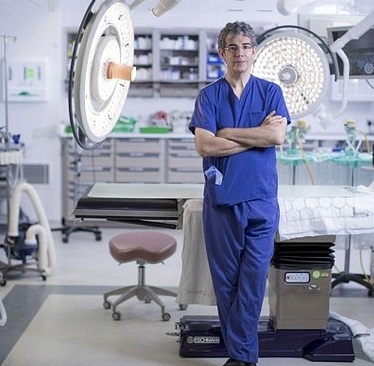At that time, trauma surgeon David Knott was far from Ukraine – in London. But that didn't stop him from saving the leg of a man injured in a war in Ukraine.

David Knott previously operated in Syria
Oleksandr, the Ukrainian doctor who performed the operation, has never done this before. But a little over a week ago, he watched Professor Knott do it in a Ukrainian hospital.
Alexander photographed the wound on his smartphone and sent the photo to Professor Knott, who had already returned to Britain by that time. An experienced military surgeon confirmed that the operation was necessary. He also sent a video to a Ukrainian doctor showing a previous similar operation.
I was very nervous and worked slowly, step by step, when doing the operation. But it was a success thanks to David Knott.
Born in Carmarthen, Wales, Professor Knott has worked in many conflict zones, including Afghanistan, Iraq and Syria.
Fortunately for Alexander and his patient, the consultant surgeon, who now works at St. Mary's Hospital in London, recently visited Ukraine, where he taught Ukrainian surgeons how to treat war wounds.
The shelling, according to Nott, resulted in horrific injuries. In particular, these are severe shrapnel wounds to soft tissues, bones and extremities.
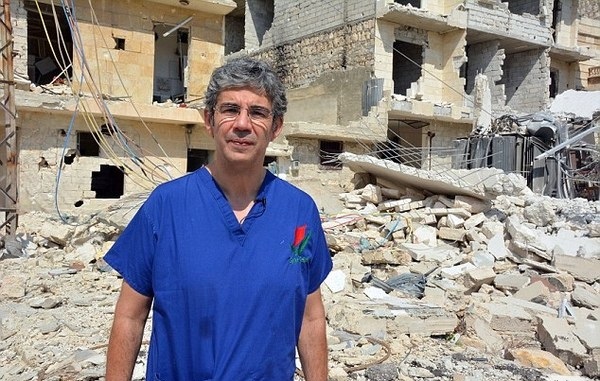
David Knott has worked in war-torn countries around the world
Even a bomb blast can cause significant damage, says the surgeon. It is able to tear off limbs. However, if the blast strikes a building, the damage can also cause serious injuries.
Barotrauma, an injury caused by a pressure drop during an explosion, is of particular concern, as Russia also uses thermobaric weapons, also known as vacuum bombs. They cause hemorrhages in the brain or lungs, and the victims choke on blood. In addition, they cause rupture of the eardrums and viscera.
Professor Knott says he has visited almost all of Ukraine – “north, east, southeast, west", but does not name the specific hospitals and hospitals he visited so as not to make them the target of subsequent Russian shelling. For the same reasons, the BBC does not name Alexander's real name and whereabouts.
During the Syrian war, Professor Knott used Skype from his office in London to help with the operation in Aleppo. A few days later, the hospital was bombed. And, according to the surgeon, he will never know if there was a connection between the first and the second.
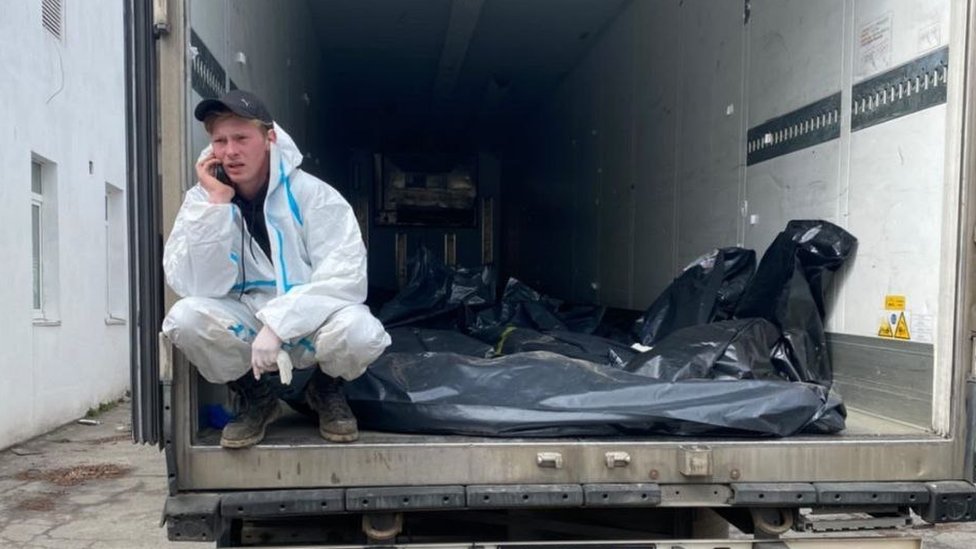
According to Professor Knott, Russian troops fired on 115 hospitals in Ukraine.
During his stay in Ukraine, Professor Knott tried to show the operations he performed to as many Ukrainian surgeons as possible. Surgery on injured limbs, skin grafts and covering damaged bones were especially important.
But Professor Knott's mission, a joint operation of his own charity and the international organization UOSSM (Union of Medical Care and Relief Organizations), is not over. Even after leaving Ukraine, he consults Ukrainian doctors, as in the case of a complex operation on his leg, which was performed by Alexander.
During this operation, a piece of skin from under the wounded man's knee closed the wound and protected it from infection in the damaged bone..
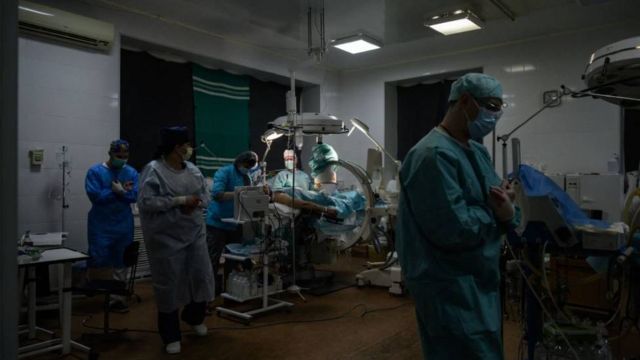
Operation in one of the Ukrainian hospitals, not related to the mission of David Knott
Such operations are very complicated, they can go wrong and cause serious problems.But despite all the challenges, the result was amazing. "Everything went really well.
And for Alexander it was very important to have professional advice from someone who has practical experience in such operations.
Such relief when he said that everything would be fine.
He admires his British colleague, who, as Alexander says, “showed us, ordinary doctors, how to fight on the medical front."
He also notes that knowledge of this type of operation is “very necessary in our situation" because the number of such injuries with bare bones is extremely high right now due to the shelling.
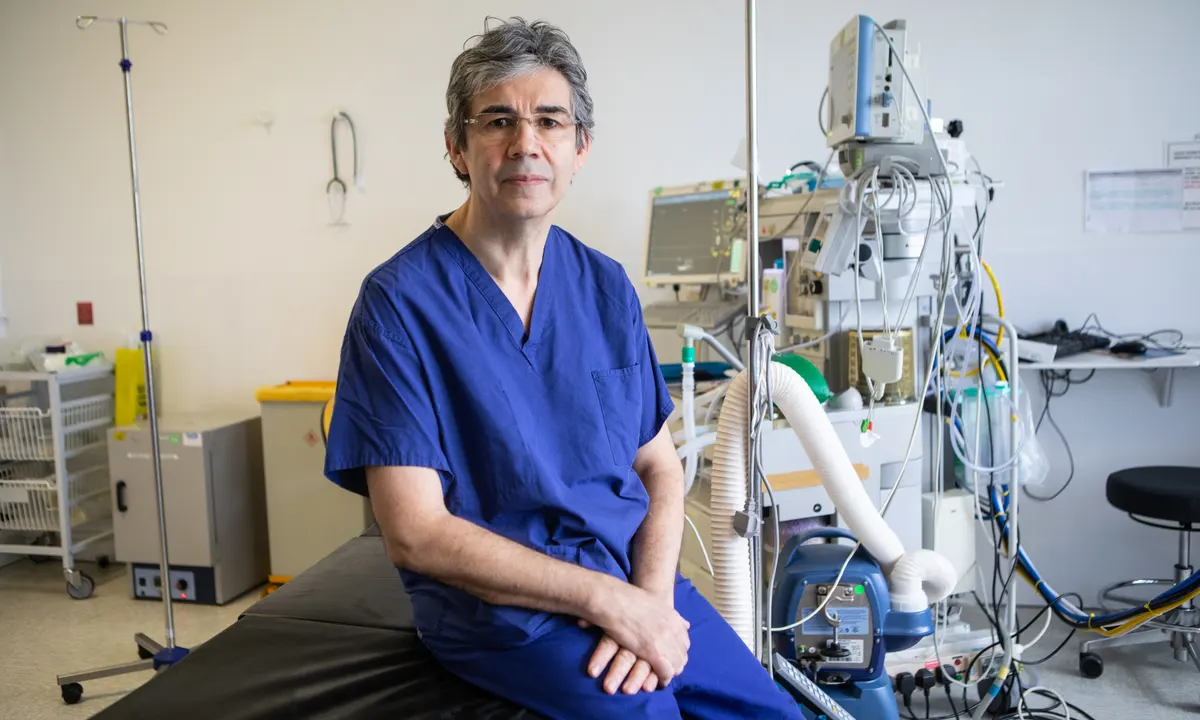
Professor Knott also made a selection of slides and videos about the operation of military wounds, and sent them to “as many doctors in Ukraine as possible."
He also hopes that surgeons like Oleksandr, whom he taught, will pass this knowledge on to other colleagues, and that in the near future most Ukrainian surgeons will know what to do with such injuries.
For Professor Nott, what is happening in Ukrainian cities today, such as Mariupol, is reminiscent of what he saw in Aleppo.
The tactics are the same as in Syria. Absolutely the same.When I was in Aleppo in 2016, this city was simply razed to the ground.
And Alexander says that now he has to operate on “terrible wounds", which he, as a doctor, hoped never to see.
He would very much like to treat “normal" injuries. Ordinary fractures. Or replace the joints of our grandparents.
Alexander adds that whatever would be there, the doctors will stay and do their job, every day.
Sourse — bbc.com
0

